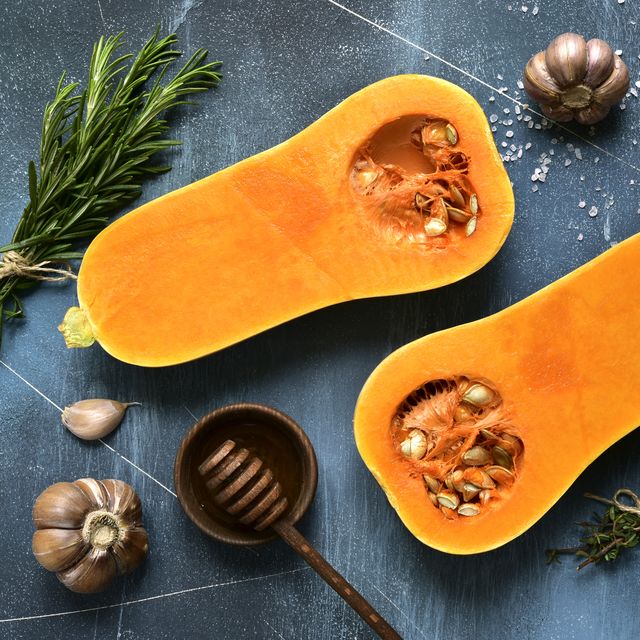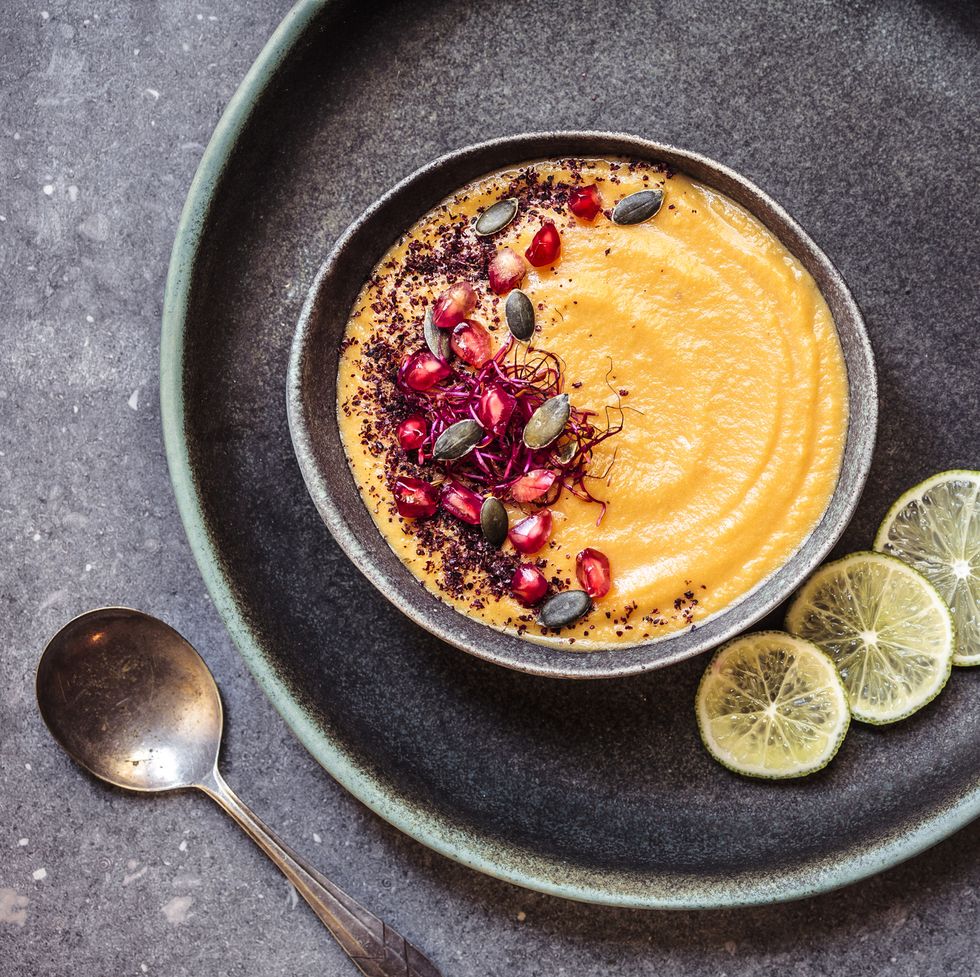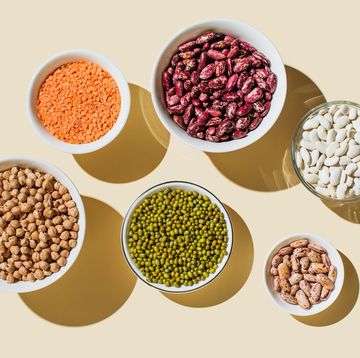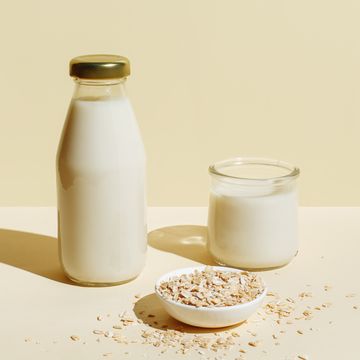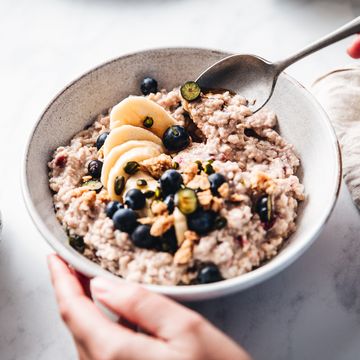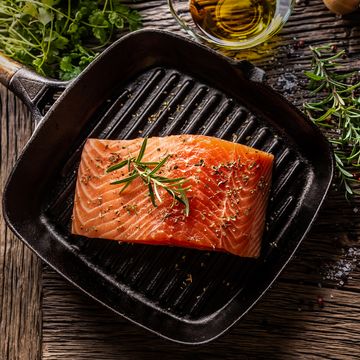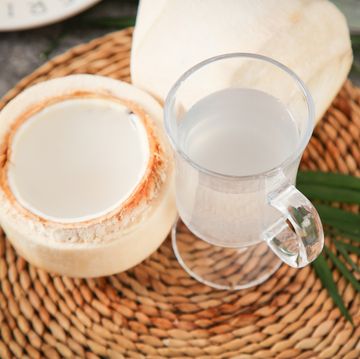Come fall, you'll be roasting, sautéing, toasting, and puréing butternut squash all the time. And while we know it's delicious, this starchy veggie is actually a cold weather superfood. In fact, while it contains more carbohydrates than other vegetables (like leafy greens), it provides an abundance of health benefits due to its richness in vitamins, antioxidants, and fiber.
Is butternut squash healthy?
Some research suggests diets high in antioxidants found in butternut squash can reduce risk of certain cancers. A meta analysis of 18 studies showed a high level of antioxidant intake (including Vitamins C and b-carotene was associated with a significantly decreased risk of pancreatic cancer).
The antioxidants found in butternut squash may also have a protective against cognitive decline. A 13-year study evaluated the association between a carotenoid-rich diet and cognitive performance. A correlation was found between consumption of orange fruits and vegetables, and the preservation of cognitive function during aging.
This fall favorite is also linked to reducing risk of heart disease by lowering blood pressure and reducing inflammation. Research has shown antioxidant and anti-inflammatory activity of carotenoids may help against cardiovascular risk factors such as markers of inflammation, high cholesterol, hypertension, and obesity.
A cup butternut squash also provides 582 mg of potassium, more than you would find in a banana. The recommended daily intake for potassium is currently 4,700 mg/day. Meanwhile, the typical American diet tends to be high in sodium and low potassium. Consuming high amounts of sodium and low amounts of potassium can increase risk of heart disease and stroke. By increasing potassium intake can reduce the risk of cardiovascular diseases by lowering blood pressure.
As with everything, butternut squash should be consumed in moderation.
Is butternut squash a bad carb?
While butternut squash does contain carbohydrates, it is also only 82 calories a cup and is also loaded with fiber. Diets high in fiber have been linked to lowering blood pressure and cholesterol levels, and since squash packs both soluble and insoluble fiber, it can also help to improve satiety and regularity, which may help you lose weight long-term and when consumed regularly.
Which is healthier: butternut squash or sweet potato?
Both are great sources of vitamins and minerals, particularly antioxidants like beta-carotene. Sweet potatoes are about double calories, carbs, and sugar per serving than butternut squash. That being said, it does have more fiber and protein than butternut squash. Both are excellent choices, especially during the fall months when they are in season.
Regardless of how you serve up this sweet squash, you can feel confident in knowing that you're bound to have a delicious and healthy meal. For more on how to cook butternut squash, take a peek at our guide on how to prepare it.

A registered dietitian with a Bachelor of Arts degree from Northwestern University and a Master of Science degree in Clinical Nutrition from New York University, Jaclyn “Jackie” London handled all of Good Housekeeping’s nutrition-related content, testing, and evaluation from 2014 to 2019. Prior to joining GH, she was a clinical dietitian at Mount Sinai Hospital. Jackie has also appeared as an expert guest on The Dr. Oz Show and The Today Show. She is also author of the book Dressing on the Side (and Other Diet Myths Debunked).
